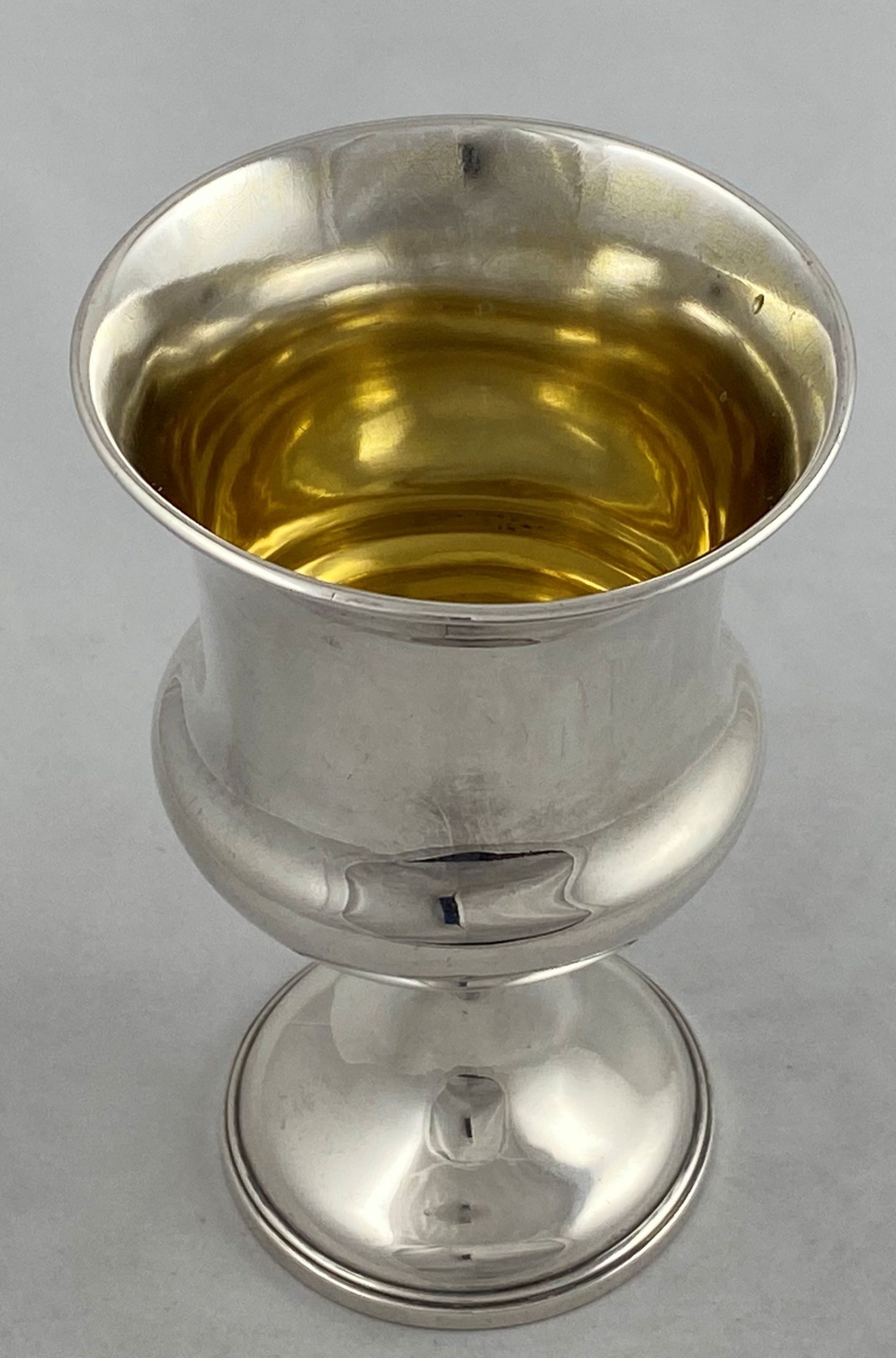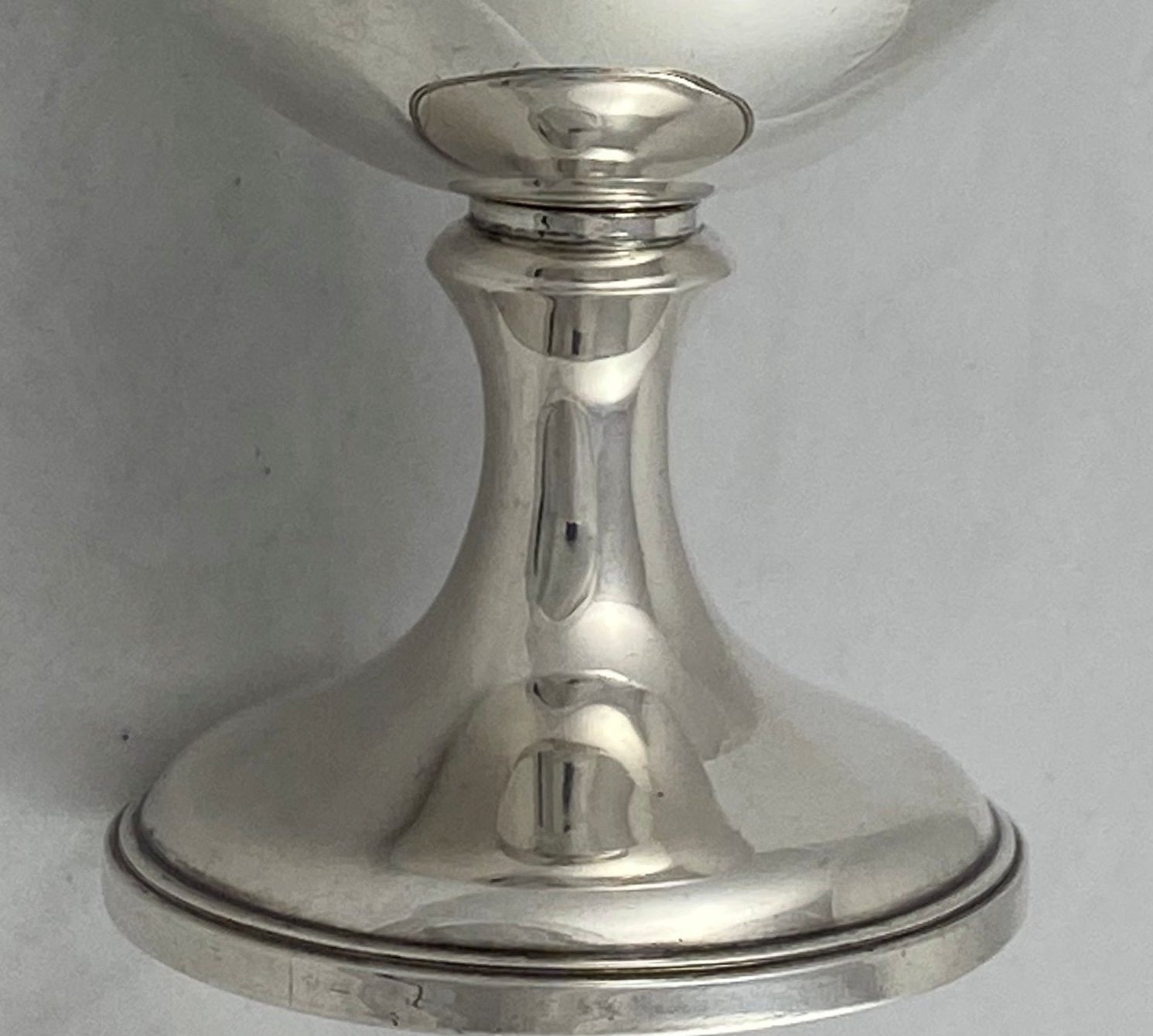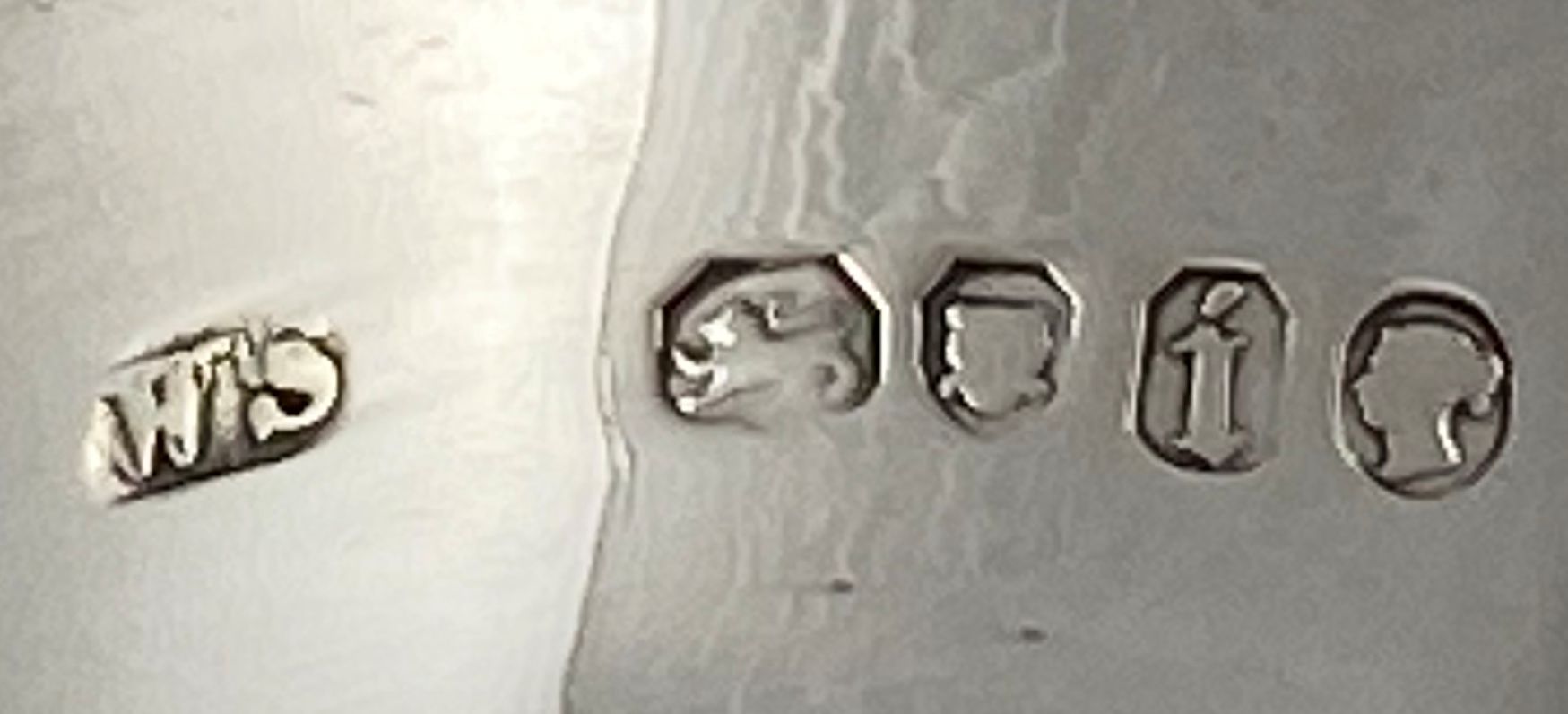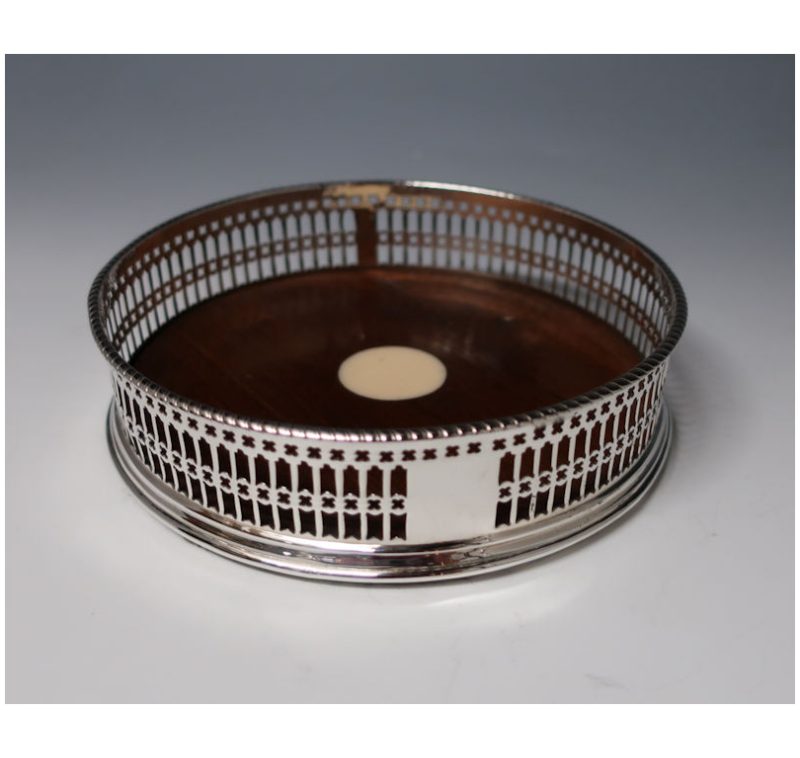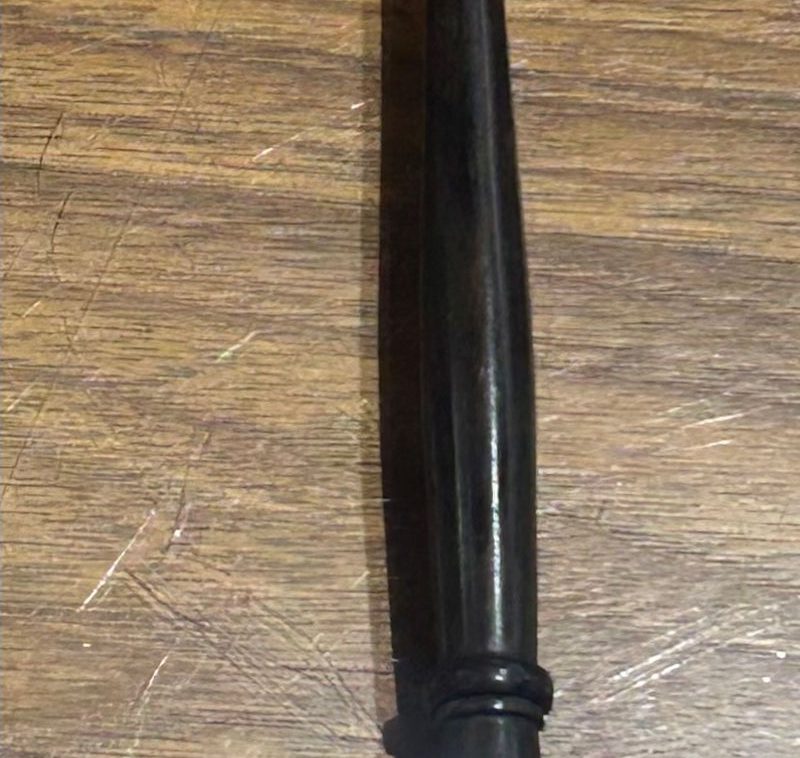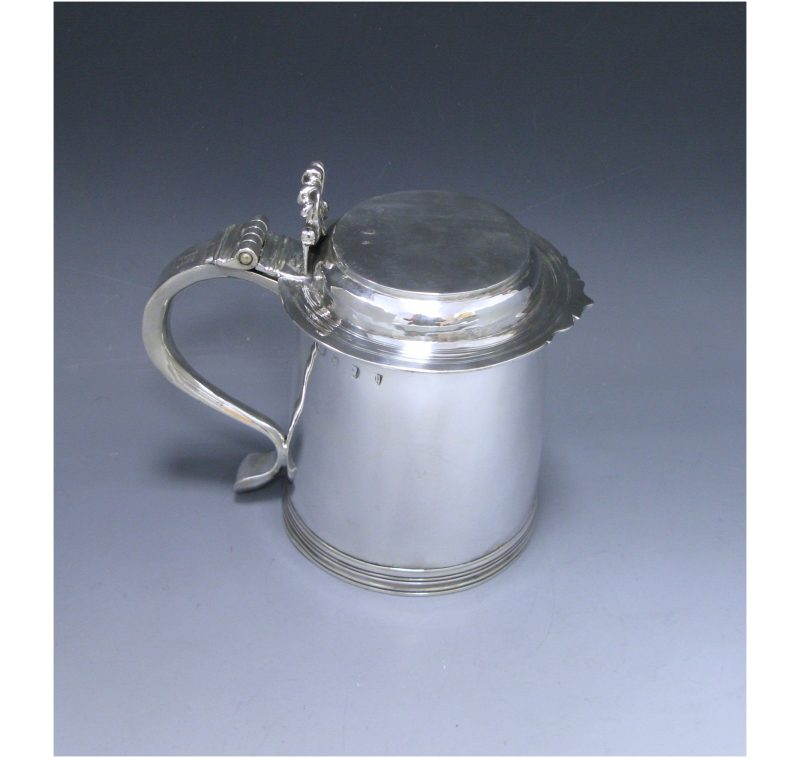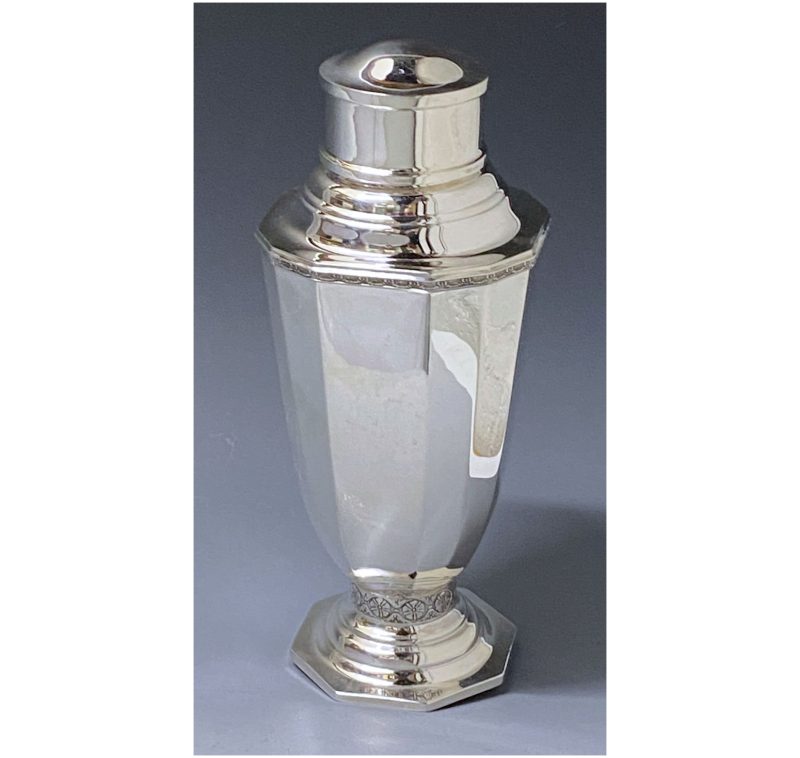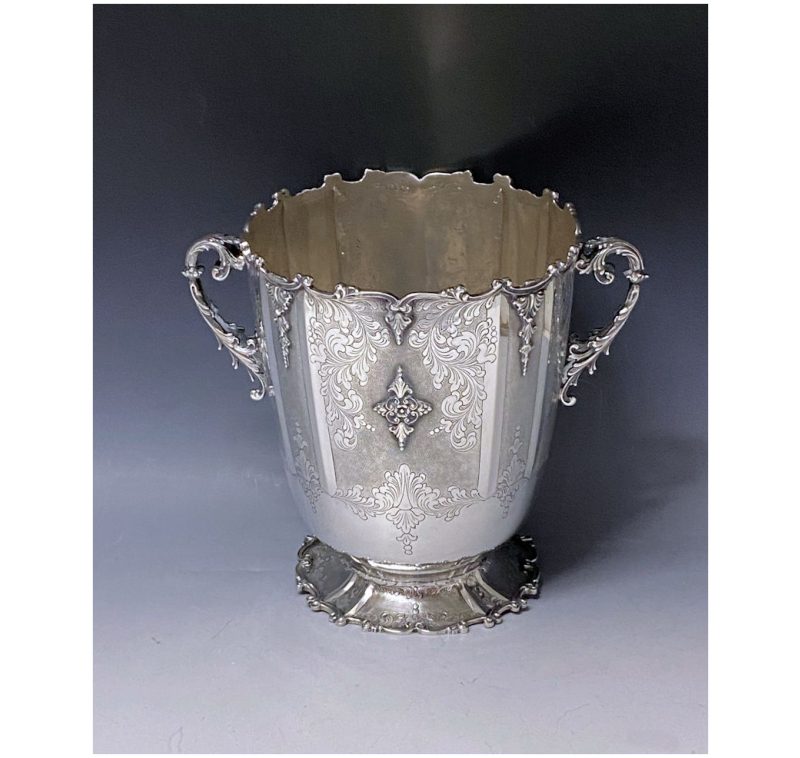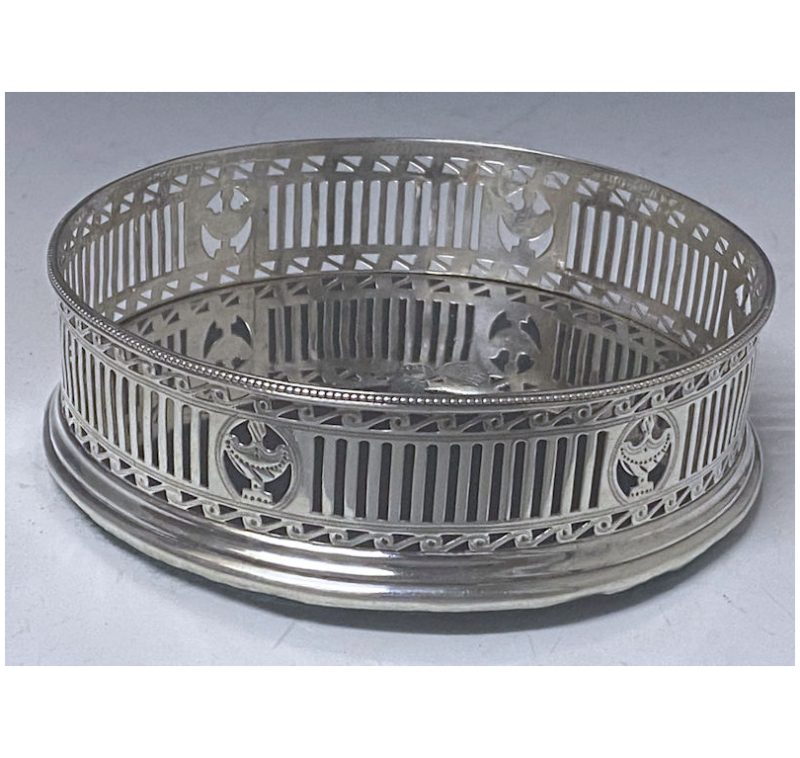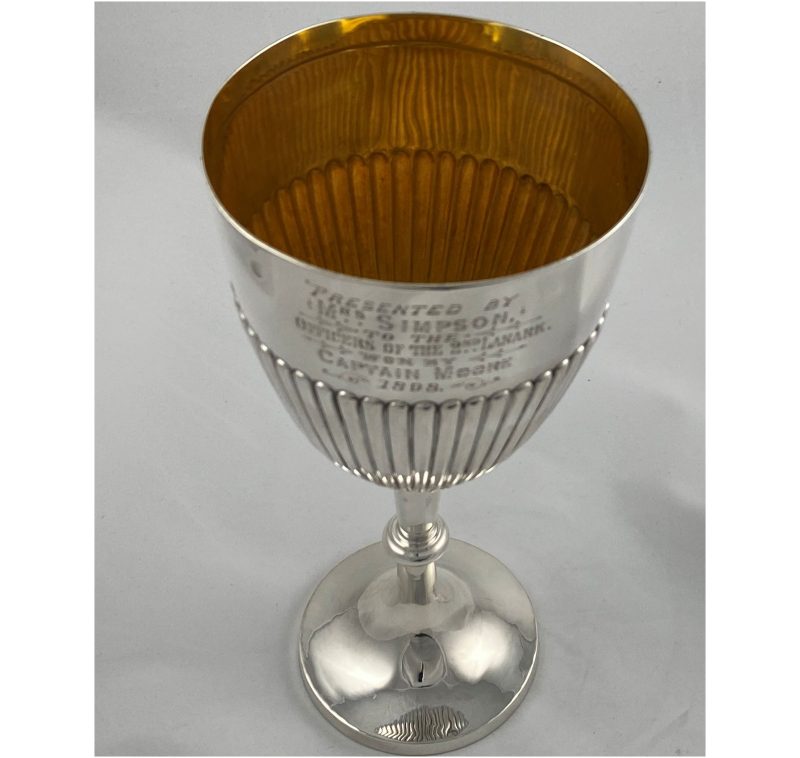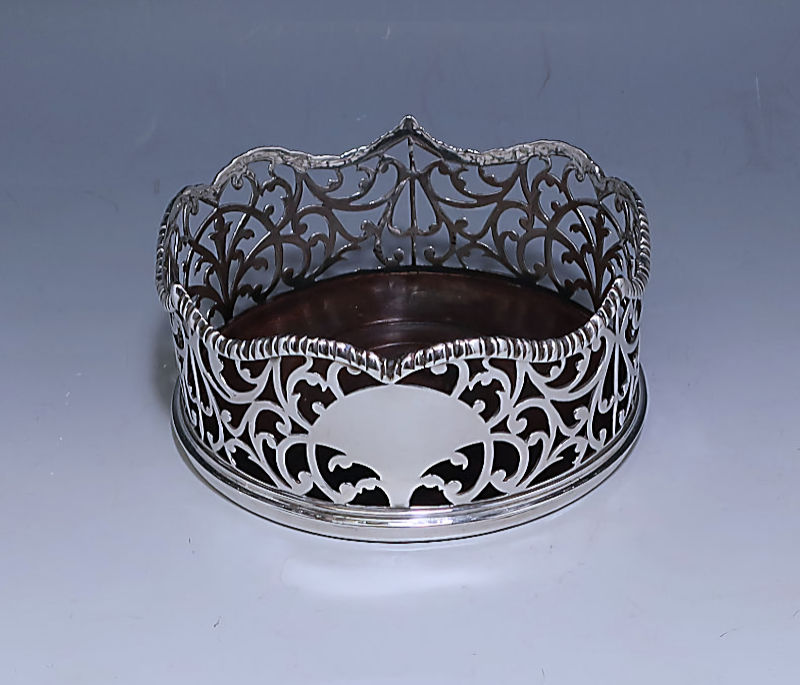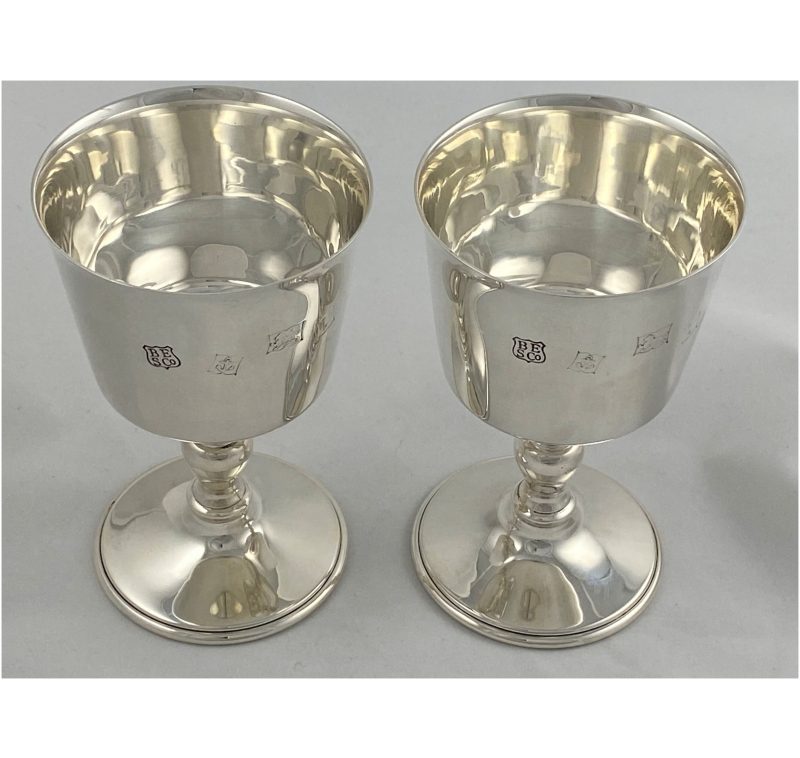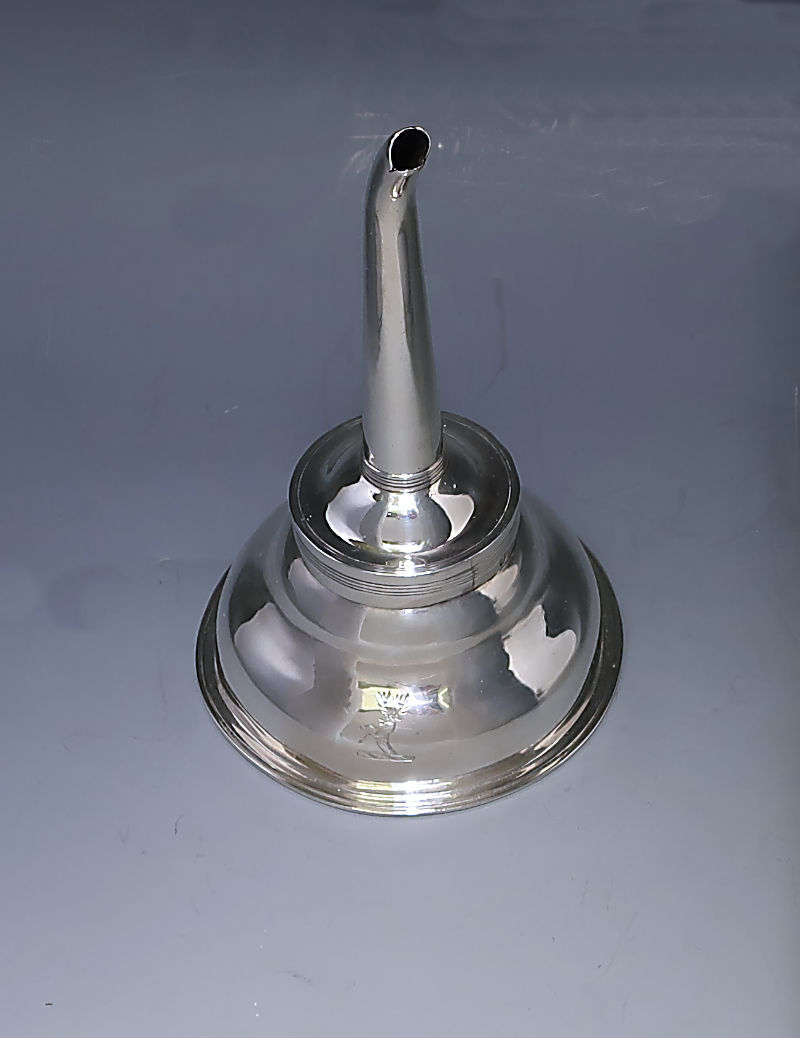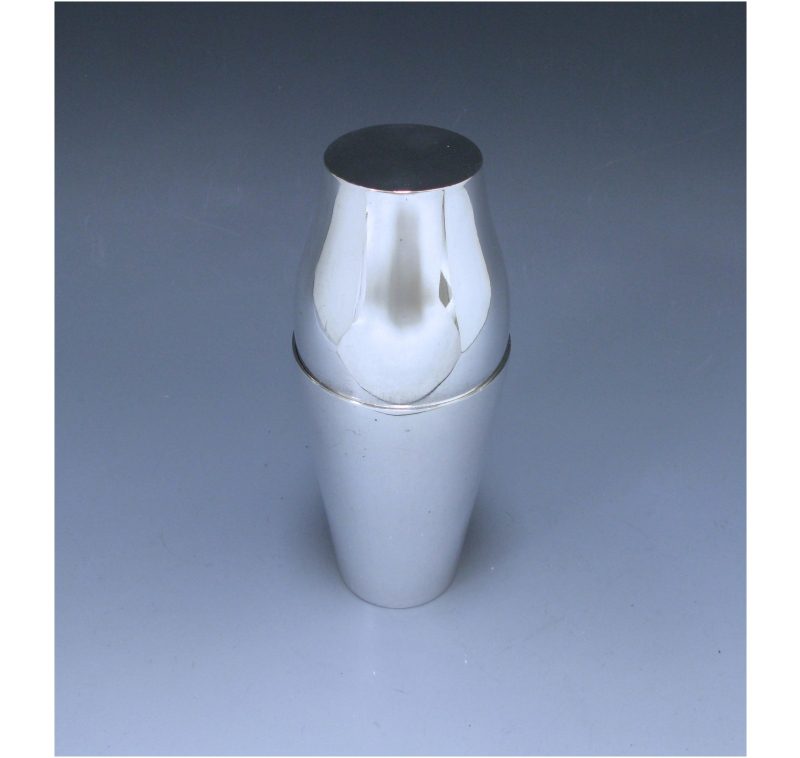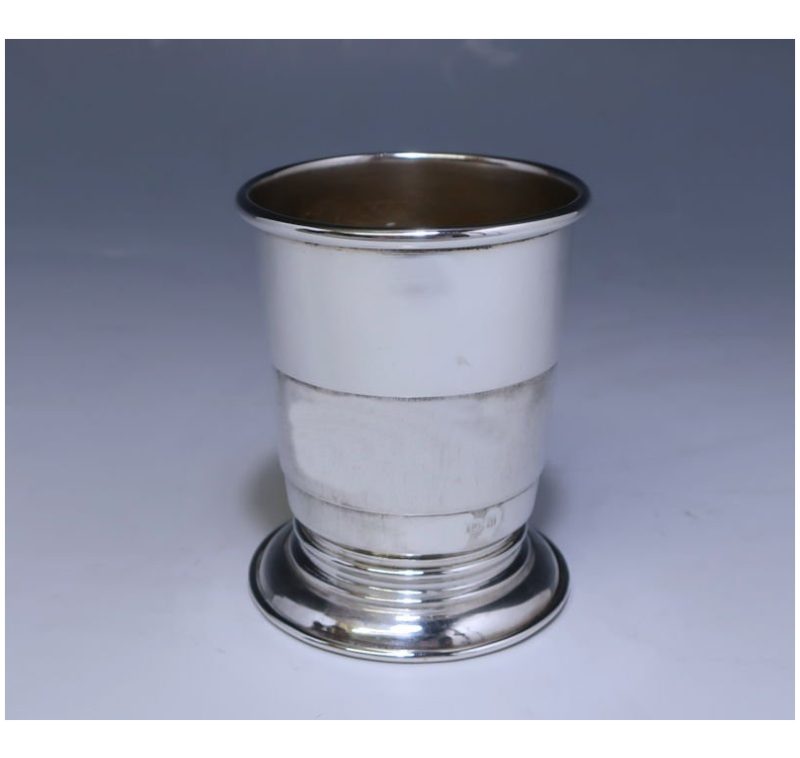Item Sold
Antique Silver Victorian Goblet made in 1864
Sold
A lovely mid-Victorian antique silver goblet with gilt interior. The goblet is of plain campana shape and on a circular reeded foot.
| Date | 1864 |
| Made By | William Smily |
| Location | London |
| Stock Number | W193x40 |

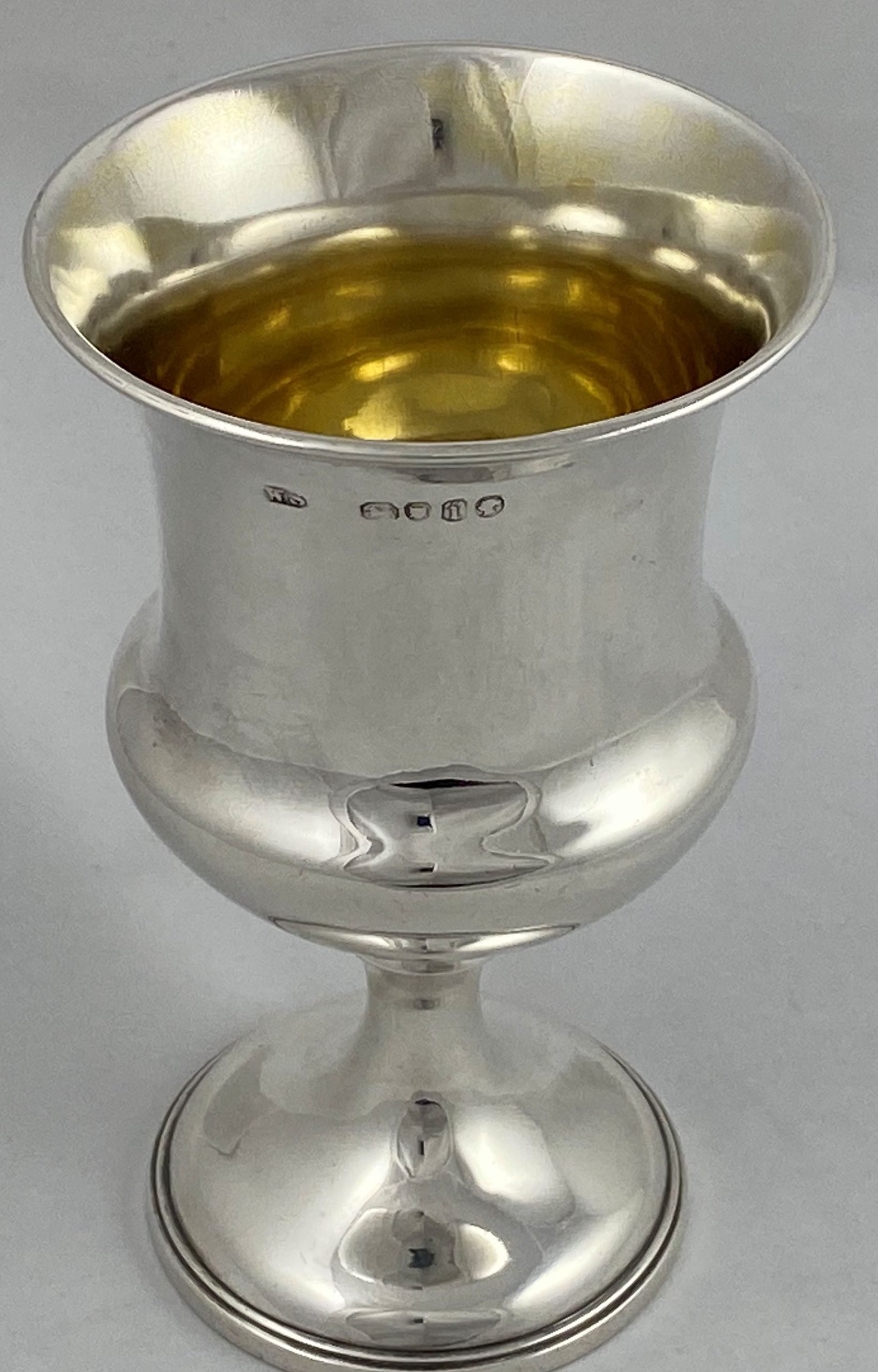
Out of stock
A lovely mid-Victorian antique silver goblet with gilt interior made in 1864 by William Smily of London.
The goblet is of plain campana shape and on a circular reeded foot. It will hold about 200 ml of your favourite tipple.
Dimensions: 13.2 x 7.2 cm; weight 4.65 troy oz.
William Smily (born in 1792) was apprenticed in 1809 to Joseph Preston, spoon and fork maker.
In 1815, following the death of Joseph Preston, he was turned over to Thomas Wallis II to complete his apprenticeship. However, he did not take up his freedom of the Goldsmiths’ Company until 1830 (freedom by Service at the address Gee Street, Goswell Street). It is likely that, at that time, he had commenced work in the factory of A.B. Savory & Sons at 15 Gee Street. His son, William Robert Smily, was apprenticed to him in Gee Street in 1833, obtaining his freedom in 1840.
In 1840, William Smily is recorded as residing and working at 5 Finsbury Place South – the address of another of Savory’s factories where also the other two sons were apprenticed to their father (Samuel Smily I in 1840 and Thomas Smily in 1841).
William Smily entered his own marks at Goldsmiths’ Hall only in 1855 and 1856 when he became works manager for A.B. Savory & Sons. His marks (SS into a rectangle) were used on silverware manufactured for the firm (from c. 1860 often accompanied by the stamp “A.B. Savory & Sons”).
In April 1865, William Smily moved to 18 Red Lion Street (the address of A.B. Savory & Sons factory) where he died on 9 September of the same year.
His eldest son, William Robert Smily, after apprenticeship to his father (1833) and freedom by Service (1840) established, in 1842, his own business as W.R. Smily (spoon maker) at 7 Seaward Street, Goswell Street. In c. 1844 he moved to 9 Camomile Street, were he traded as manufacturing silversmith. In 1852, W.R. Smily moved to 65 Crown Street, Finsbury Square in the premises previously occupied by Charles Lias (1837 – 1847) and Judah Hart (1847 – 1852).
William Robert Smily died in 1858 (aged 34). The business was continued by his brother, Thomas Smily, maintaining the trade name of W.R. Smily.
Thomas Smily, the younger son of William Smily, was born in 1827. After the apprenticeship to his father (1841) and freedom by Service (1848) he, presumably, continued to work with his father for A.B. Savory & Sons. He entered his own mark in the Goldsmiths’ Hall only in 1858, when he was called to manage the business at the death of his brother, William Robert Smily. The firm maintained the name of W.R. Smily until 1883, when the business was acquired by Edwin Charles Purdie.
Thomas Smily emigrated to Canada, where he died in 1918. Samuel Smily (born 1825), the other son of William Smily, after apprenticeship to his father (1840) and freedom of the Goldsmiths’ Company (1847) presumably continued to work with his father for A.B. Savory & Sons. After the death of William Smily (1865), Samuel Smily registered his own mark at the Goldsmith’ Hall (SS into a chamfered rectangle) and took over his father’s position of works manager of A.B. Savory & Sons.
In 1866, A.B. Savory & Sons was converted into a limited liability company and changed the name to Goldsmiths’ Alliance Ltd. From this date the hallmark ‘SS’ was often accompanied by the stamp “Goldsmiths Alliance Limited”. Samuel Smily retired from Goldsmiths Alliance Ltd in 1880 and died in 1882.
Other members of Smily’s family obtained their freedom of the Goldsmiths’ Company but didn’t enter their own mark in the Goldsmiths’ Hall. They were:
William Robert Smily II (born 1845) and his brother Alfred Smily (sons of William Robert Smily) – they obtained their freedom by Patrimony in 1869 and 1871.
Samuel Smily II (born 1860), son of Samuel Smily – he obtained his freedom by Service in 1882.
We provide worldwide postage/shipping and everything is fully tracked and insured. Purchases will be sent via Royal Mail Special Delivery, FedEx, Parcel Force, A-Z couriers; other delivery providers may be used in extenuating circumstances. We deliver to the address provided at the time of purchase but not to PO addresses, as a signature is required upon delivery.
Some countries levy import duties and local taxes. Payment of these is the purchaser’s responsibility and beyond the control of William Walter Antiques Ltd. When the container has reached the destination country, a customs representative will contact you for payment prior to delivery.
Import restrictions are applicable to some destinations, especially the import of products containing materials such as ivory and tortoiseshell. We cannot accept orders requiring shipment to any countries which implement such controls.
All items are checked and photographed prior to packaging, and we aim to dispatch 1-3 days after receiving cleared payment.
Delivery Charges:
For the UK £15.00
For Europe £30.00
For the rest of World £50.00
The charges are subject to change
At the heart of William Walter Antiques is our dedication to providing our customers with beautiful silver of supreme quality, which celebrates all that is precious about sterling silver. Customer service also being paramount, our long-standing, devoted staff team go above and beyond the call of duty for all our clients. We believe it is this combination of passion and commitment that has kept our customers with us for many years.
We accept credit/debit cards or bank transfer. Please submit an enquiry below or contact us on:
Phone Number
+44 (0) 207 242 3248
Email
info@williamwalter.co.uk
Visit us at the London Silver Vaults
William Walter Antiques,
London Silver Vaults,
53-64 Chancery Lane,
London, WC2A 1QS
Opening Hours
Mon – Fri: 10:00 – 17:00
Sat: 09:00 – 12.30




